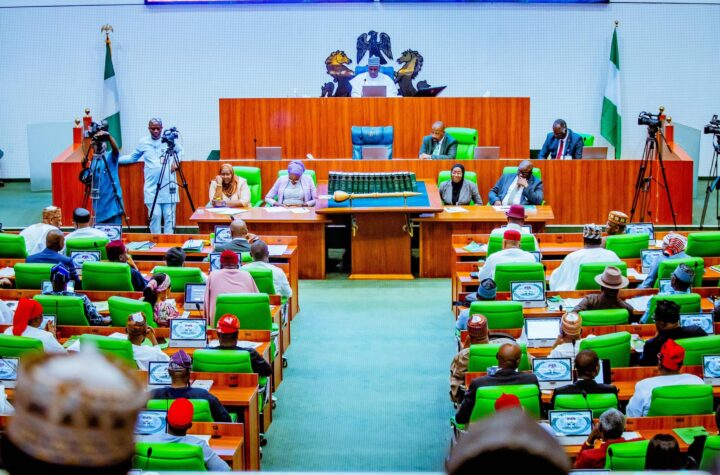Mathew Amaechi
The House of Representatives on Wednesday approved the harmonised versions of four major tax reform bills transmitted by President Bola Tinubu, marking a pivotal step in the administration’s effort to overhaul Nigeria’s tax system.
The bills, initially sent to the National Assembly in October 2024, were passed during plenary under the leadership of Deputy Speaker Benjamin Kalu, following agreement between the House and the Senate on contentious clauses. The move now clears the way for the legislation to be sent to the President for assent.
The Chairman of the House Committee on Finance, Abiodun Faleke (APC, Lagos), who led the House team in the joint conference committee, presented the harmonised report. According to him, the committee resolved over 100 points of disagreement across the four bills: the Nigeria Tax Administration Bill, Nigeria Revenue Service Bill, Joint Revenue Board Bill, and the Nigeria Tax Bill.
“Every grey area has been addressed. We took the best from both chambers to produce a consensus document,” Faleke told lawmakers.
One of the most significant elements of the reforms is the introduction of a 4% development levy on the assessable profit of all taxable companies, excluding small and non-resident companies. The levy will be collected by the Nigeria Revenue Service and deposited into a dedicated account for national development purposes.
The committee also agreed on a revenue-sharing formula for the development levy, allocating:
- 50% to the Tertiary Education Trust Fund (TETFund)
- 15% to the Education Loan Fund (up from 3% in the original House version)
- 8% to the Nigeria Information Technology Development Fund
- 8% to the National Agency for Science and Engineering Infrastructure (reduced from 10%)
- 4% to the National Board for Technology Incubation
- 10% to defence and security infrastructure
- 5% to the national cybersecurity fund
The Social Security Fund, Nigeria Police Trust Fund, and National Sports Development Fund—previously included—were excluded in the final version passed by the House.
In another major update, a new clause (Clause 158) introduces a 5% surcharge on fossil fuel products, to be collected at the point of transaction. This move is seen as part of the government’s push to diversify its revenue streams and tackle environmental concerns.
Deputy Speaker Kalu praised the House for delivering on a critical legislative task. “We have played our part in moving Nigeria forward. The executive must now take the baton and complete the race,” he said.
But there were also notes of caution. Ahmed Jaha (APC, Borno), representing Gwoza/Damboa/Chibok, warned against post-passage tampering with the harmonised texts. “Where the T is not crossed, don’t cross it. Where the I is not dotted, don’t do it,” he said, citing past incidents where unauthorised edits caused presidential assent to be withheld.
Jaha also applauded the leadership of Speaker Tajudeen Abbas and Deputy Speaker Kalu, along with Committee Chair Faleke, for steering the process to a successful conclusion. “This is the way legislation should be done,” he said.
The harmonised tax bills now await President Tinubu’s signature—a formality, if no last-minute edits are made. Once signed into law, the reforms are expected to reshape the country’s fiscal framework and broaden its non-oil revenue base.

